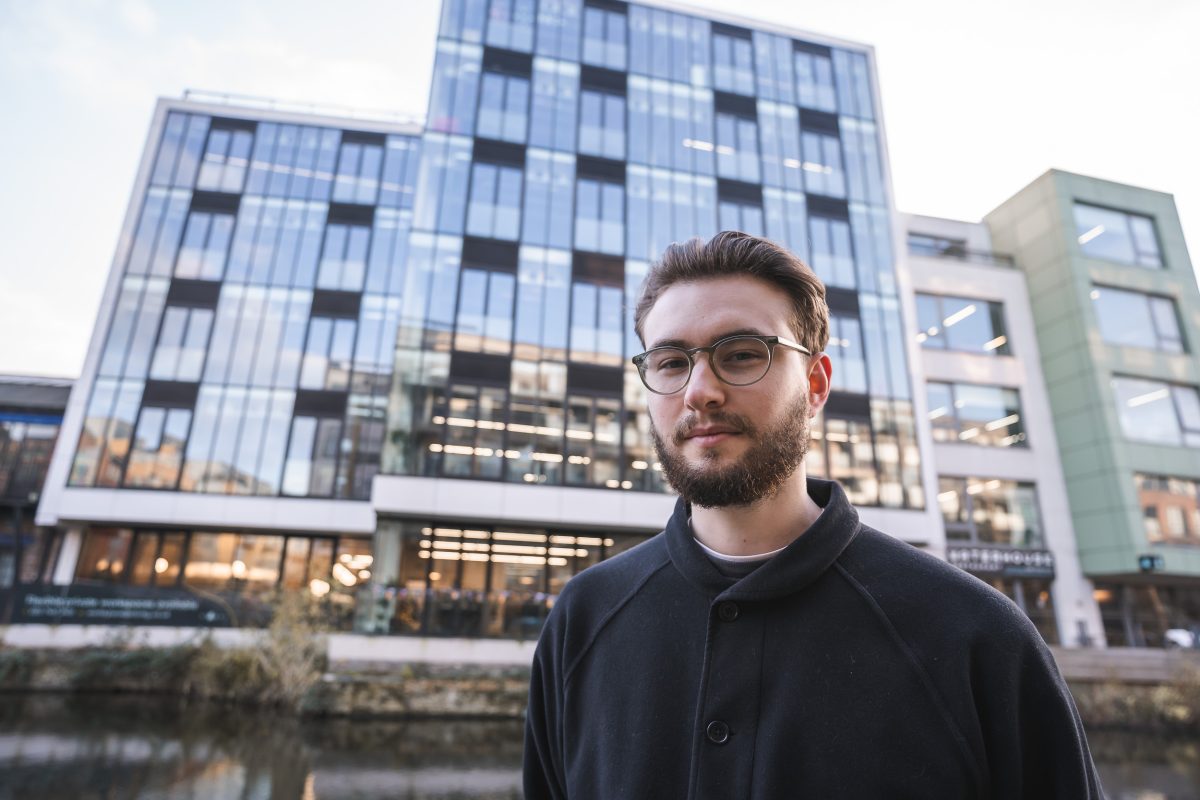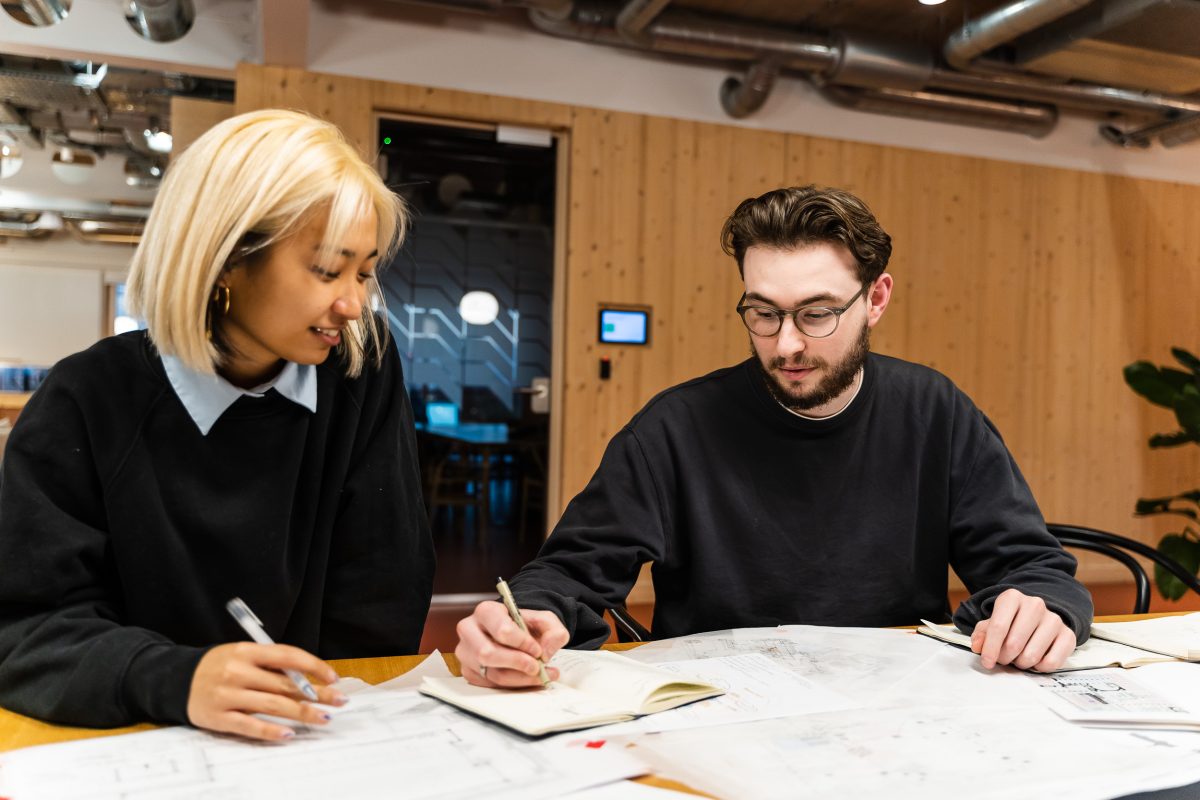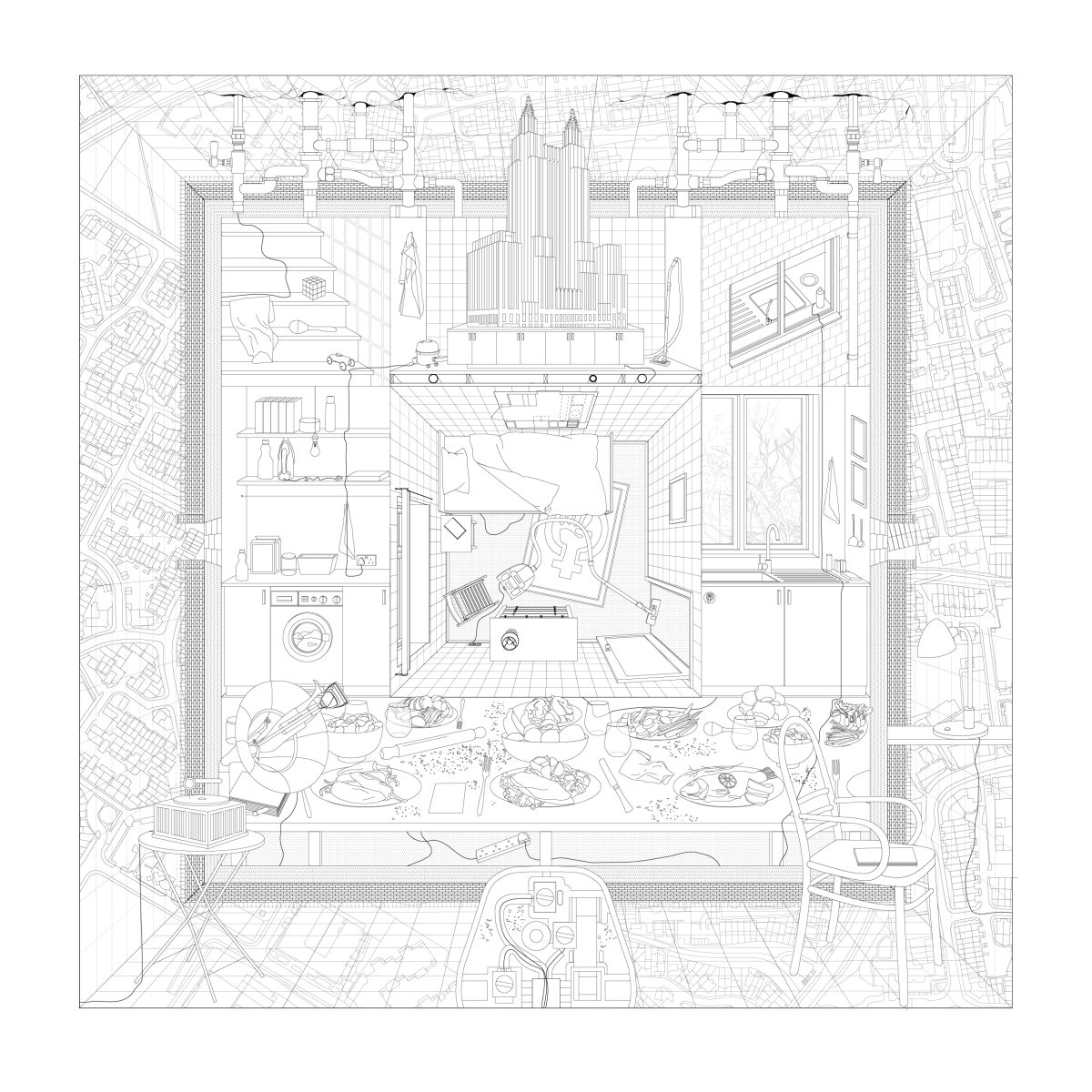JOB OPPORTUNITY: MARKETING MANAGER
ATTEND THE BRITISH EMPIRE EXHIBITION SYMPOSIUM 2024
SEE OUR GRADUATING STUDENTS’ WORK
JOB OPPORTUNITY: CRITICAL PRACTICE TUTOR
JOB OPPORTUNITY: DESIGN HISTORY TUTOR
PlanBEE: Matching young people with work in the Capital
The Dalston Pavilion
LSA Graduate Exhibition 2024
British Empire Exhibition: Call for Participation
LEAD OUR BRAND-NEW PRACTICE SUPPORT PROGRAMME
HELP DEFINE THE FUTURE OF EQUITABLE BUILT ENVIRONMENT EDUCATION
LSA and Black Females in Architecture (BFA) Announce new partnership
24/25 Admissions Open Evening – 6 March
2023 LSA GRADUATES WIN RIBA SILVER MEDAL AND COMMENDATION
STEFAN BOLLINGER APPOINTED AS CHAIR OF THE BOARD OF TRUSTEES
STEPHEN LAWRENCE DAY FOUNDATION SCHOLARSHIP
APPLICATIONS ARE OPEN FOR OUR PART 2 MARCH FOR 2024/25
Open Evening – 7 December 2023
BOOK PART 4 NOW: SHORT COURSES – MODULAR LIFELONG LEARNING – FUTURE PRACTICE
IN MEMORIAM – PETER BUCHANAN
The LSA is Moving
Become a Critical Practice Tutor at the LSA for 2023/24
Become a Design Tutor at the LSA for 2023/24
Pathways: Exhibiting Forms
City as Campus: The Furniture Practice
Summer Show 2023: FLAARE Futures Workshop
Summer Show 2023: Meet Your Future Employer
Summer Show 2023: Close to Home
WE ARE SEEKING A NEW FINANCE MANAGER
Nigel Coates: Liberating the Plan
AN INTERVIEW WITH ELLIOTT WANG, SECOND YEAR REP
PART 4 LAUNCH
IN MEMORIAM – CLIVE SALL
Our Design Charrettes – an insight into life at the LSA
BOOK NOW – OPEN EVENING WEDNESDAY 8 MARCH
An Interview with Emily Dew-Fribbance: LSA Alumna and First Year Design Tutor
Pathways: Optic Translations
Thursday Talks: Questioning How we Embed Sustainable Design in Practice
An Interview with LSA alumna Betty Owoo
Interview with Marianne Krogh – Rethinking water as a planetary and design element in the making of the Danish Pavilion at Venice Biennale
What do our students think of studying at the LSA? We spoke to Second Year student Semi Han
Hear from our Alumni – An Interview with Calven Lee
National Saturday Club Programme
LSA Alumnus Jack Banting published in FRAME
2022/23 Design Think Tank Module Launches
Mentoring can transform the architecture profession – for good
APPLICATIONS ARE OPEN FOR 2023/24
Alternative Routes To Registration: An Evening with ARB (17/11/2022)
Circular architecture needs material passports
Apply To The LSA: Online Intro (23/11/2022)
AN INTERVIEW WITH ELLIOTT WANG, SECOND YEAR REP
The LSA is at the forefront of educational innovation – we are asking big questions about real world challenges to face inequity and the climate emergency. We understand that these issues are very important to the upcoming generation of architects and the future of the profession, and we work hard to equip students with the tools they need to tackle climate, social and other real-world challenges head on. We are excited to welcome a new cohort of students who share our ethos in September – if you want to be part of this movement for change, there is just over a week left before our next cycle deadline and you can apply now.
Last week we spoke with Second Year Student Rep Elliott Wang, one of many of our students who seeks to question and challenge current societal systems through his architecture. Elliott is currently working on his Design Thesis project, which is about domestic reproductive labour and its presence within our dwellings. This project questions how experimental forms of collective living can begin to challenge our preconceived understanding of this type of work, pushing the limits of the collective and individual.

Orsman Rd, Haggerston. Elliott stands across the canal from our studio space. Photography by Bo Morgan.
Elliott has also recently helped develop the new student-led event series ‘Pathways’, which aims to explore design parallels by highlighting the works and processes of artists, makers, designers, and thinkers, offering alternative pathways to architectural work. During his Student Placement he worked at Studio Shaw.
Elliott speaks about what appealed to him about The LSA, how studying with us has changed the way he designs and what he thinks prospective students should know about the LSA before they apply.
Thanks for your time Elliott! Firstly, can you tell me why you chose to study at the LSA?
Because the course offered an atypical approach to a master’s degree.
The socially minded, progressive and questioning form of design teaching offered something unique, whilst the relationship with practice and the overlapping elements of the course with the profession was something I was really interested in. The small-scale aspect of the school also offered a master’s degree that seemed more personal and active.
And what’s it like, now you’re here and studying?
Very dynamic. Modules are designed to work together to inform an overall strategy of design thinking, whilst the involvement with practice throughout the course fosters a unique exchange of experience and knowledge, unlike most master’s courses. The general atmosphere within the school is very comfortable and welcoming, both within your year, across the cohort and between faculty and students.

Orsman road, Haggerston. Elliott and fellow Second Year student Semi discussing their thesis projects. Photography by Bo Morgan.
During your first year you did your student placement in Studio Shaw. Did enjoy working in practice alongside studying?
Yes, I did. Working in practice allowed me to enhance and support my university design projects whilst encouraging the challenging and questioning of the profession.
Did splitting your time across practice and your studies affect how you interact with your year group at all?
It’s actually really useful – the year group became a network of knowledge picked up through the various forms of work everyone did in practice as well as being a welcome element of support.
Has studying at the LSA changed how you design?
Yes. The LSA functions as a testbed for a multitude of ideas. Starting at the extremes of a project is something that I personally enjoy doing and something that is really facilitated and energised within each of our modules and by tutors and staff.

Elliott’s thesis project takes the stance that we must re-establish how we value domestic reproductive forms of labour in our dwellings and how this is reflected within our society.
What is the most important thing for prospective students to know before they apply to the LSA?
Prospective students should not hold back or be restrained with their design thinking. The LSA is a place that encourages radical, progressive, and questioning forms of design. It is much more exciting to push the limits of a project than start with the most basic version.
And finally, you’ve spoken about the LSA being a place that pushes for change in the Built Environment. What change do you want to see in Architecture, and how does the way you design contribute to that change?
Architecturally, I think more of an allowance for experimentation would have an interesting impact on all elements of the modern city. I’d love to see us move away from our obsession with possession and ownership which largely dictates the way in which cities and their inhabitants function. I think any design process that starts with an understanding and questioning of existing physical, political, social, and economic conditions can begin to enable this. The LSA really drives for and encourages these processes allowing us to believe that change is possible, even under current systems.
Thanks Elliott, that was great!

